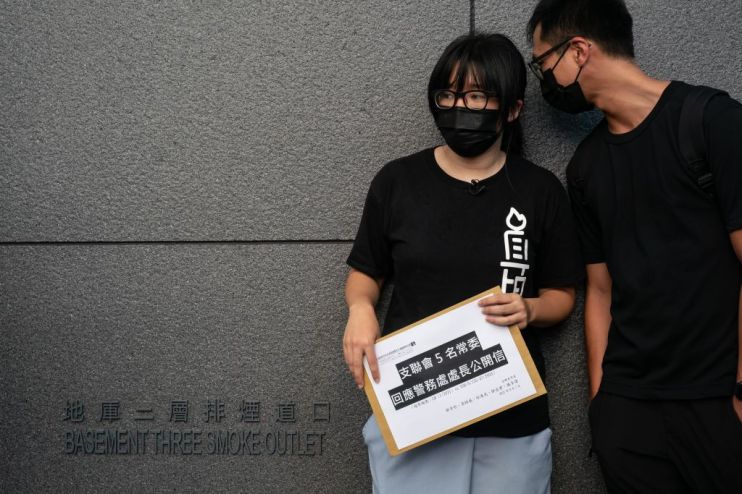British banks in Hong Kong have traded away their principles

Hong Kong has been a crucial economic gateway between East and West for decades. As one of the biggest markets in the world, the city has punched well above its weight on the international business stage. With recent political and social upheaval and repression, however, that reputation is changing.
Despite a shift in the global financial industry towards prioritising the wellbeing of people and the planet as well as profits, Hong Kong is experiencing a different trend. For some banks in the region, short-term profit is the only priority – and they are willing to contort their professed principles in order to curry favour with the increasingly authoritarian forces at the top of Hong Kong.
There is a need for a fresh inquiry into this kind of unethical behaviour, that’s why the All-Party Parliamentary Group on Hong Kong, has stepped up to the plate. Over the coming months, we will be talking to individuals and financial institutions operating in Hong Kong to get to the core of this matter.
For the past two years, the Chinese Communist Party has been rolling back the rights and freedoms previously enjoyed by Hongkongers. Under the growing threat of persecution, democratic politics in Hong Kong has become a sham. The recent voting for the new 1,500 strong “election committee” saw just one non-establishment candidate make the cut. Pro-democracy media outlets like Apple Daily have been shuttered, and the police harassment of protesters has violated international humanitarian standards. The draconian National Security Law – repressive legislation which has seen pro-democracy activists imprisoned – has caused particular consternation.
Through statements of support for the new law and the freezing of accounts of individuals being investigated, however, several banks have collaborated with the Hong Kong Police Force in its vendetta against the pro-democracy movement. Some Hongkongers who have fled their home to other countries report not being able to access their pension funds due to this cosy relationship. The Law has been condemned by governments globally, including in countries, like the United Kingdom, where some of these influential banks are headquartered.
For the sake of stability and global trade, businesses must honour the laws of the territory in which they operate. UK banks, however, benefit from our country’s commitment to human rights. For them to happily profit from the dismemberment of democratic freedoms at the same time is irresponsible and short-sighted. They cannot have their cake and eat it too.
Our investigation will cover whether the actions of UK banks have contributed to the suppression of human rights in Hong Kong; whether the actions of these banks have been in line with their duty to protect human rights; and what will be the future impact of the National Security Law on institutional financial probity in Hong Kong. If the banks themselves will not take due notice of human rights then we shall do it for them.
HSBC’s Chairman Mark Tucker recently described the opportunities in China as “too big to ignore”. That might be the case. But if banks ignore their responsibilities under UK and international regulations then their integrity, reputation – and potentially their profits – will be at stake. Customers deserve to know the stance their bank holds on democratic freedoms when there is lucre on the line. Sunshine, after all, is the best disinfectant.
